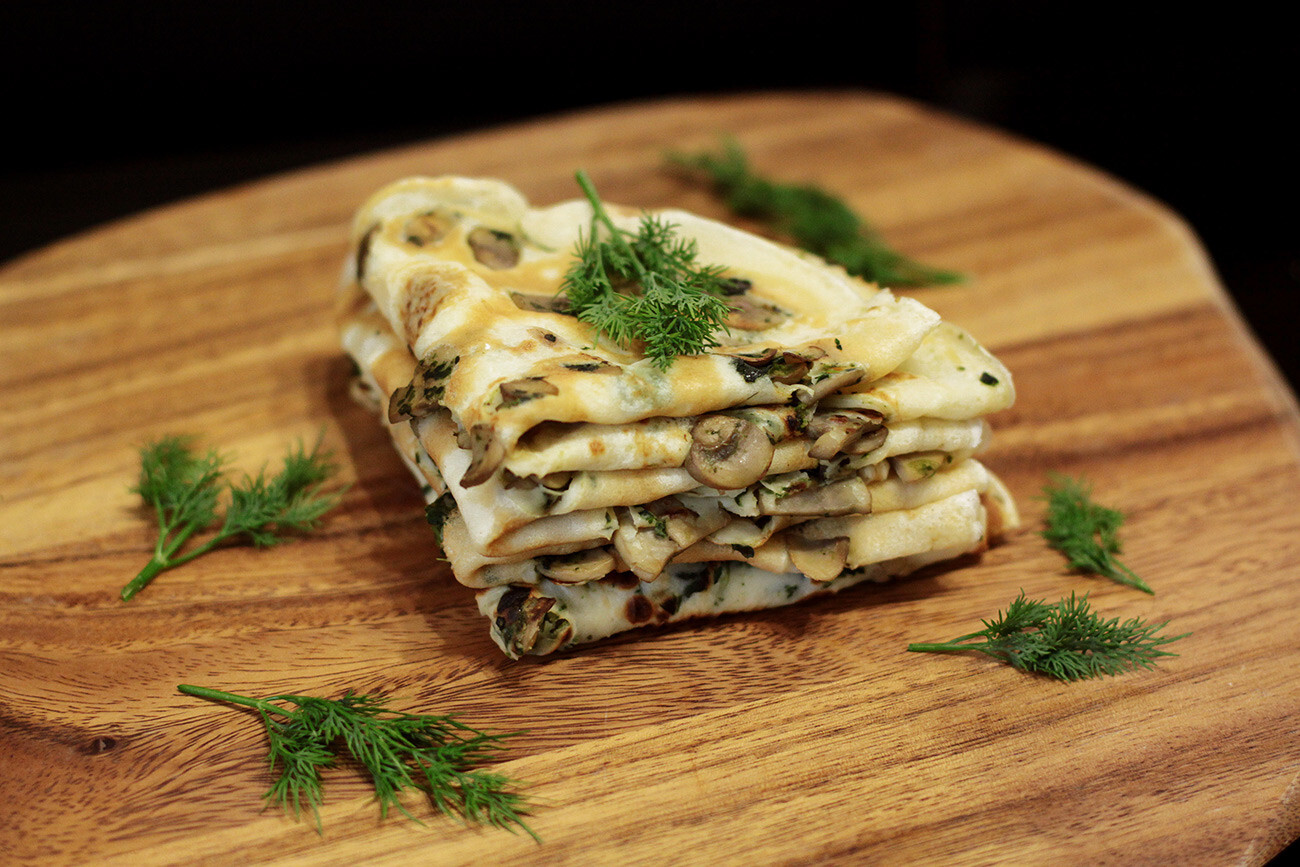
The very first fillings were “baked in”. That is, mushrooms, herbs or vegetables were first fried in a pan, then pancake batter was poured on top. The result was pancakes with pripek. Nowadays the most common way to make pancakes with mushrooms is to wrap the mushroom filling in thin, already cooked pancakes.
Recipe (for 20 pancakes with 24-cm diameter):
Defrost mushrooms (300 g), finely chop and fry in butter or vegetable oil. Fry finely chopped onions (3 pcs) and carrots (1 pc) separately in vegetable oil until golden brown. Boil eggs (2 pcs) till hard and finely chop. Combine the all ingredients, add salt and pepper. Stuff the pancakes with the filling and fold into envelope shapes.
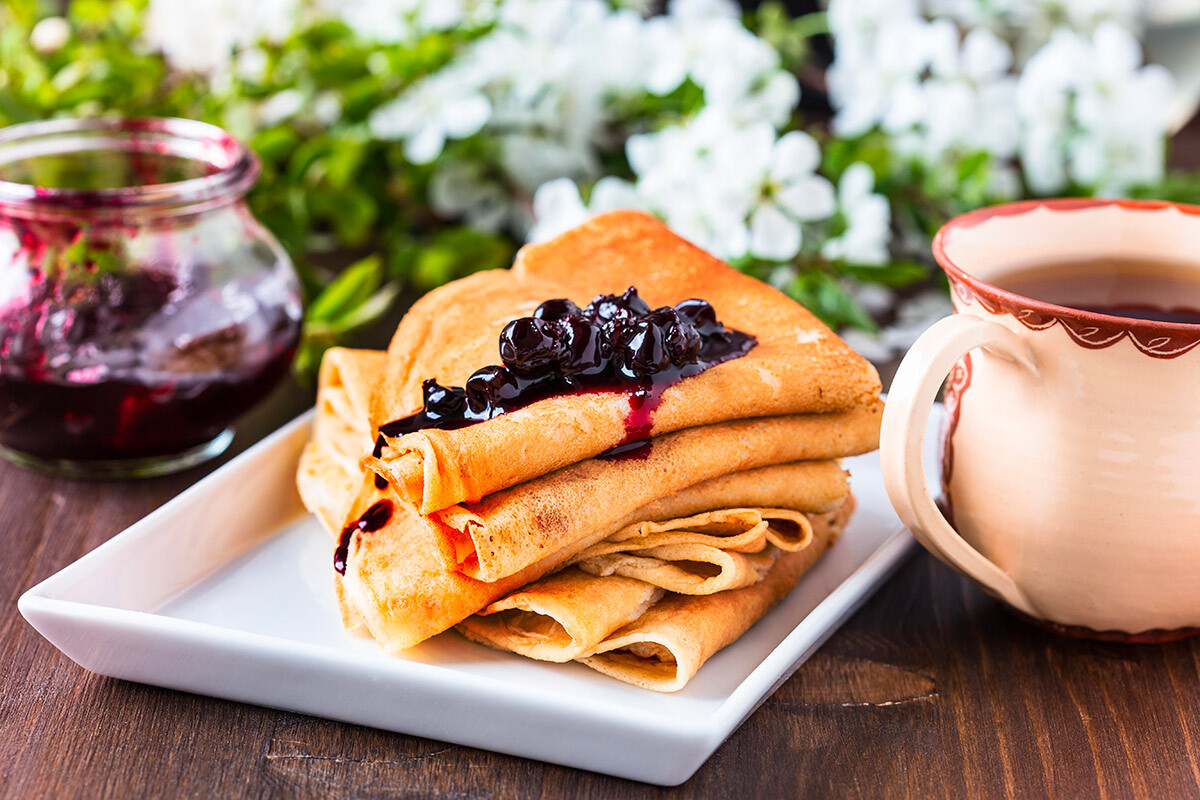
When sugar became widely available in Russia at the end of the 19th century, sweet pancake fillings soon followed. For nutritionists, these delicious pancakes are unhealthy because they are not very nourishing and do not sate the appetite. The easiest way to prepare a berry filling is to stuff the pancakes with fresh berries mashed with sugar or to sprinkle it on top. You can also pour varenye (jam) over them. The third way is to make a jam filling.
Recipe: First, make a five-minute jam, for example, from strawberries. Rinse the strawberries (500 g) and cut off the tops. Slice the large strawberries so that all are roughly the same size. Place in a saucepan, cover with sugar (400–500 g) and refrigerate for 4 hours. Put the pan on a low heat and bring to a boil, removing the resulting foam with a slotted spoon. Cook for 5 minutes. When ready, there should be around 500 ml of jam. The jam-filled pancakes can be rolled up or folded into triangles.
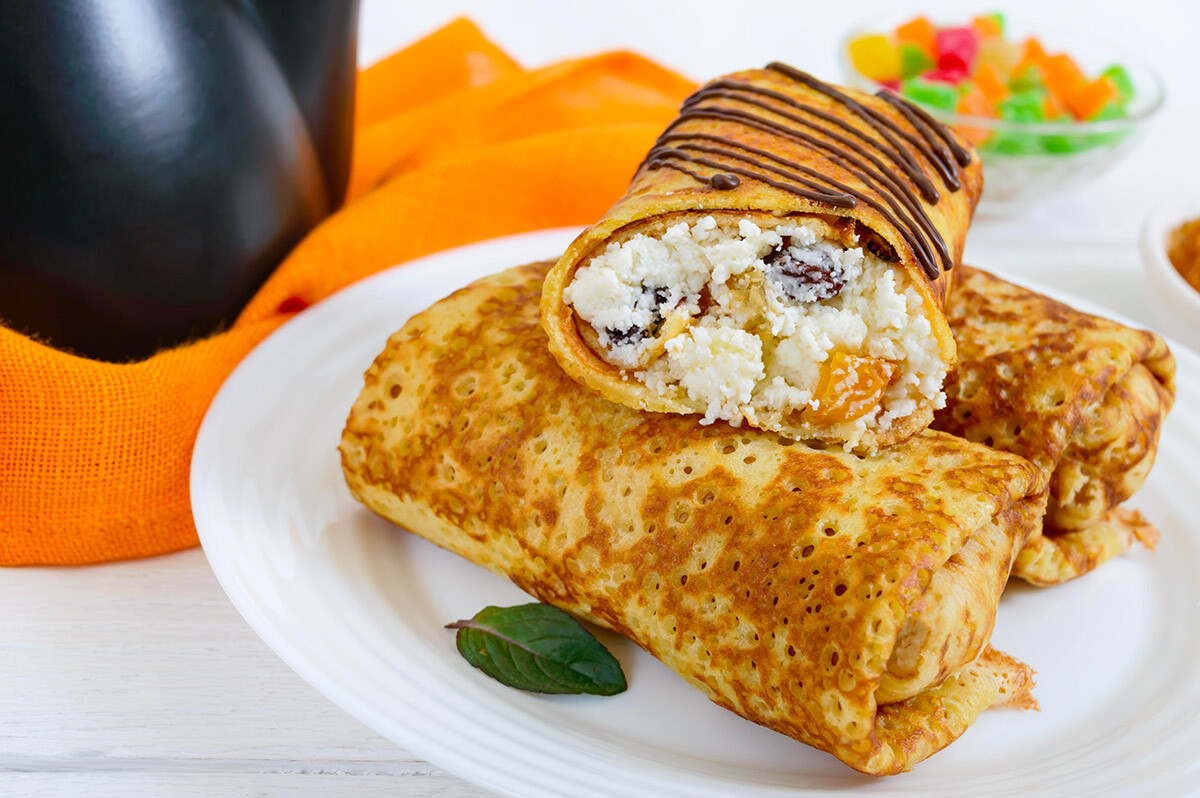
In the past, any housewife worth her salt knew how to make cream cheese from sour milk; hence this was a low-cost filling for a wide variety of baked goods, including dumplings, curd patties and pancakes.
Recipe: Pass curd (500 g) through a sieve or use soft cream cheese. Add egg yolk (1 pc) and smetana (2 tbsp), mix until smooth. Add sugar (3 tbsp), vanilla (1 tsp) and raisins (½ cup), mix thoroughly. Stuff the pancakes with the filling, fold into envelope shapes, and fry in butter over a low heat in a pan.
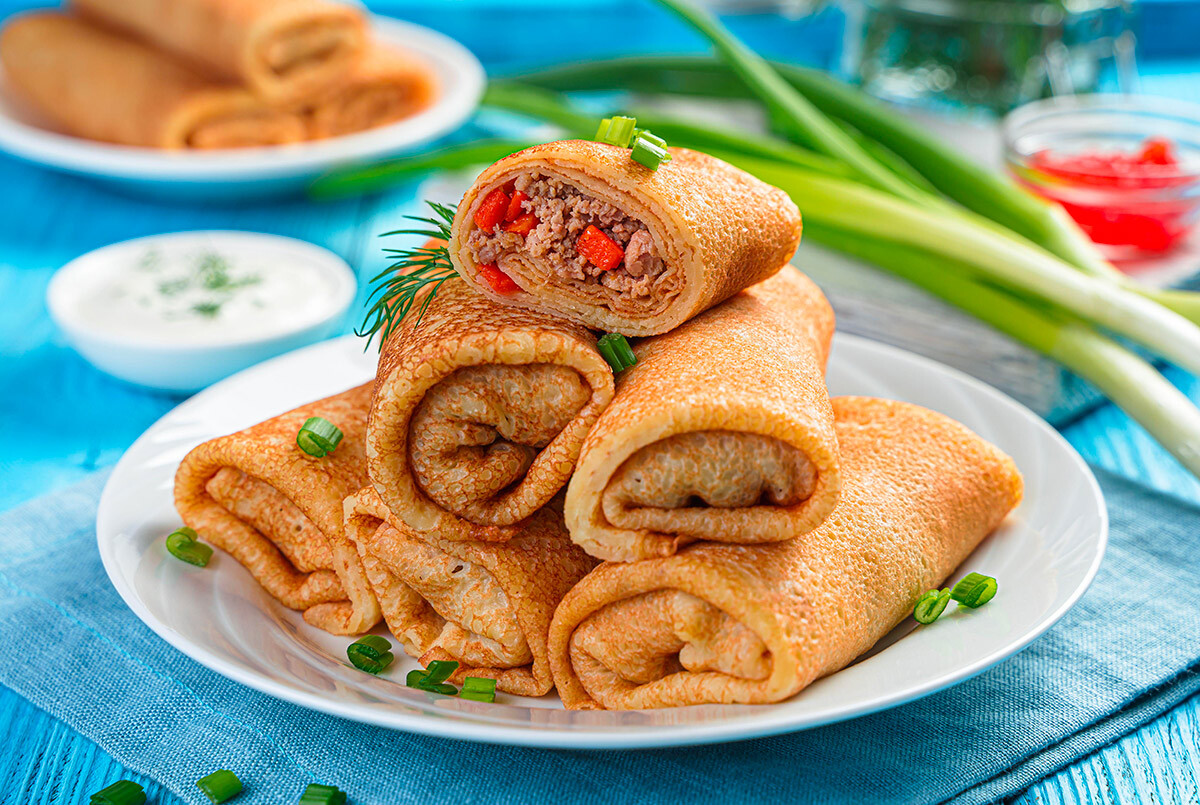
The most nutritious pancakes, often preferred by men. They can be cooked using finely chopped boiled meat (the way our ancestors probably did) or use ready-made minced meat.
Recipe: Finely chop onion (2 pcs) and fry in butter until translucent. Add pork or beef mince (450 g) to the pan with onion, plus salt and pepper to taste, and fry everything together over a low heat for another 10-15 minutes until ready. Put the filling in the pancakes, fold into envelope shapes and fry on both sides in vegetable oil. Serve with smetana.
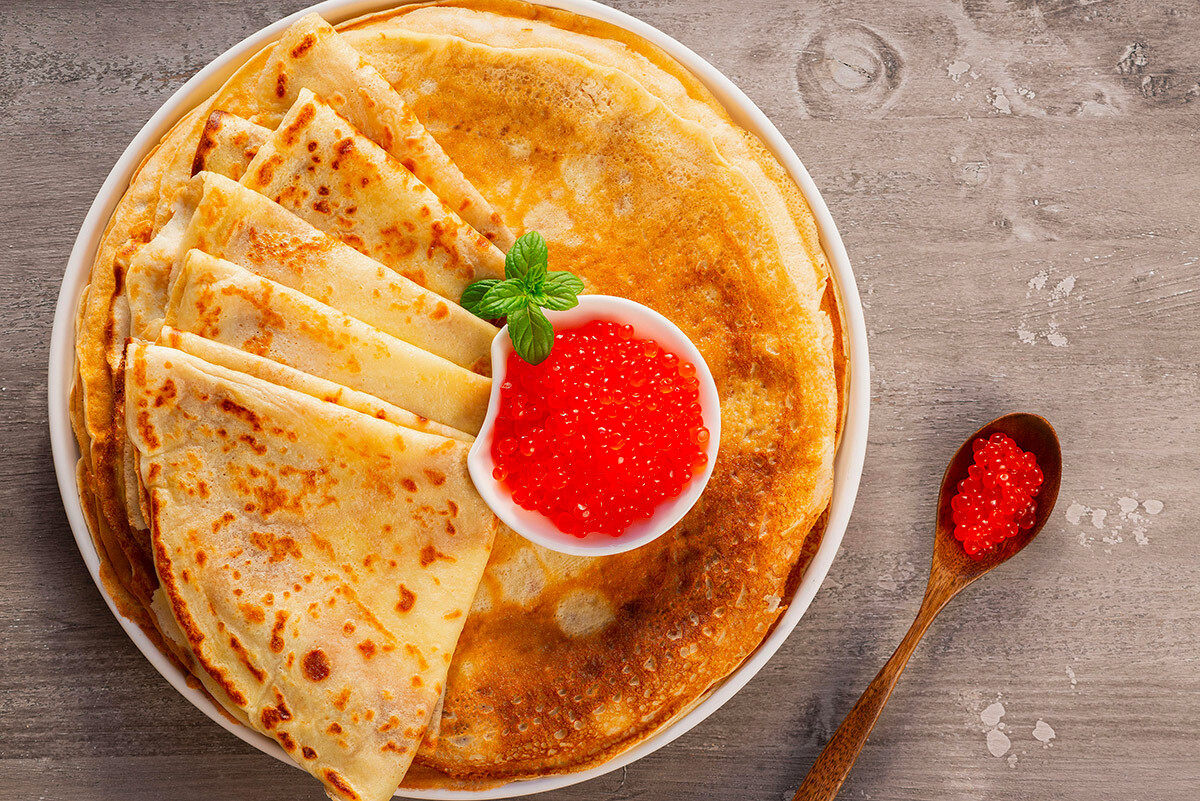
Pancakes with red or black caviar are a symbol of Russian Maslenitsa. Of course, Russian peasants did not eat pancakes with black sterlet or beluga caviar, nor with red caviar from Far Eastern salmon species. “Red caviar” used to refer to the caviar of whitefish, pike perch and perch, so it was available to the masses (depending on the region).
Even now, red salmon caviar is considered a delicacy, so not everyone can afford to put 30 grams in one pancake. Most often, pancakes are served as a stack, with caviar on the side; alternatively, a teaspoon of caviar can be laid on top of the pancake. For buffet serving, caviar is spread on the pancake, which is then rolled up and cut into mini rolls. Here’s a more economical recipe for pancakes with caviar.
Recipe: Finely chop fresh herbs (30 g) – dill or parsley will do, add to smetana (250 g; 20% fat) and mix. Add caviar (200 g) and mix gently. Place the caviar on each pancake and roll up or fold into a triangle. (Smetana can be supplemented or replaced with cream cheese.)

Cabbage has been grown in Russia for over a millennium. It keeps well, so pancakes with cabbage have long been a classic of Russian cuisine.
Recipe: Finely chop cabbage (500 g) and fry in butter. Finely chop onion (4 pcs) and fry separately in vegetable oil. Boil eggs (5 pcs) until hard and chop. Combine all the ingredients, add salt and pepper. Shape the pancakes into envelopes with the cabbage filling.
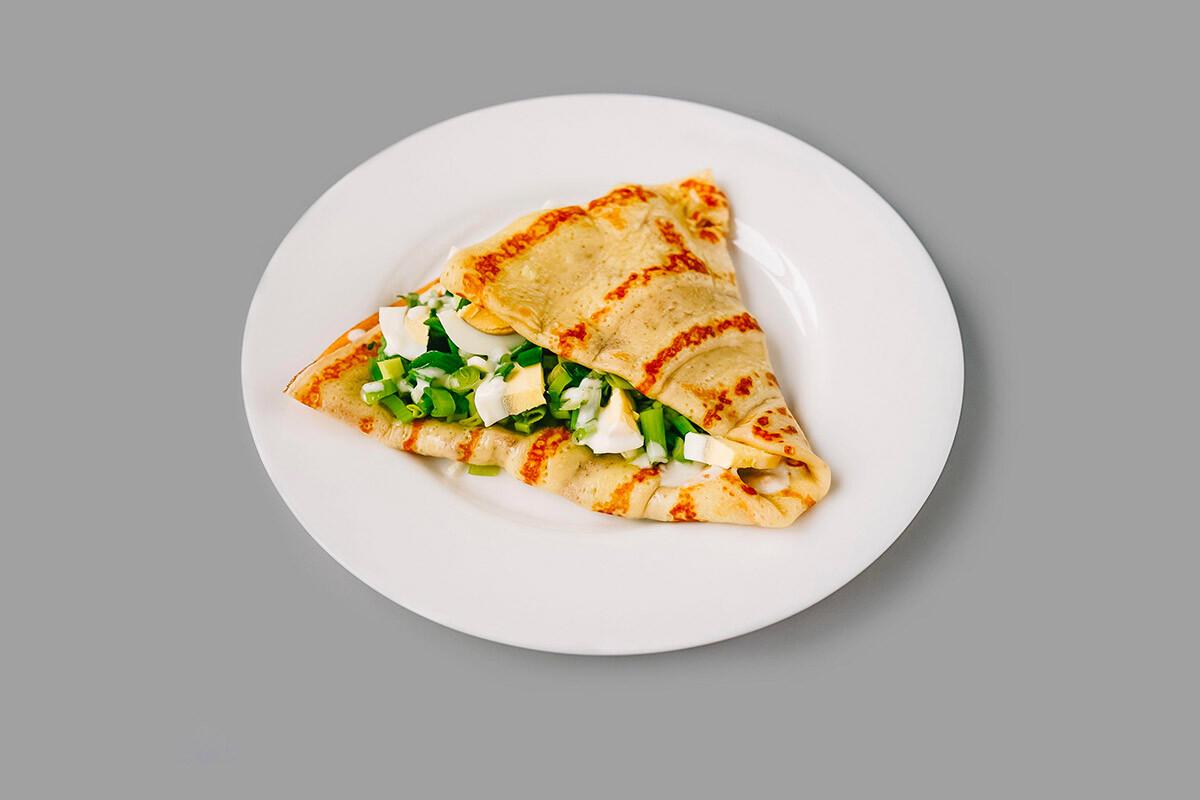
This is the most spring-summer recipe in our list – perfect for those with a bed of spring onions at the dacha.
Recipe: Finely chop spring onion (200 g). Boil eggs (10 pcs) until hard and chop. Mix everything, add salt and vegetable oil (5 tbsp). Put the filling on the pancakes, fold into envelope shapes and fry in vegetable oil until golden brown. Serve with smetana.
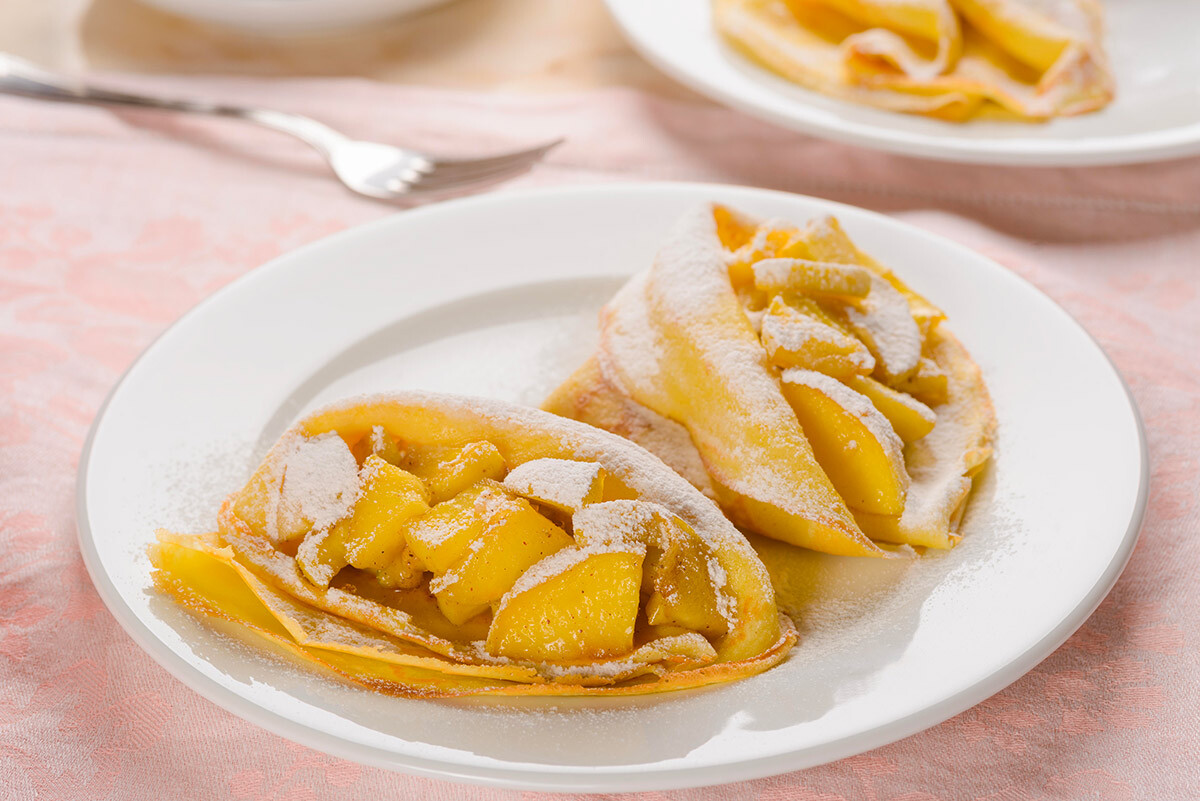
Apples are now available all year round, while before they were simply preserved for a long time in special conditions. Hence, this is a common filling for Russian pies and pancakes.
Recipe: In a heated frying pan, place butter (30 g) and sugar (150 g), and stir. Dice apples (500 g) and put in the pan. Stew for 10 minutes. Add cinnamon (1/2 tsp) and mix. Place the ready filling on the pancakes and roll up or fold into envelopes or triangles. If desired, fry the pancakes in the pan again to get a crispy crust.
The ingredients in the recipes are for 20 pancakes with a 24-cm diameter.
If using any of Russia Beyond's content, partly or in full, always provide an active hyperlink to the original material.
Subscribe
to our newsletter!
Get the week's best stories straight to your inbox